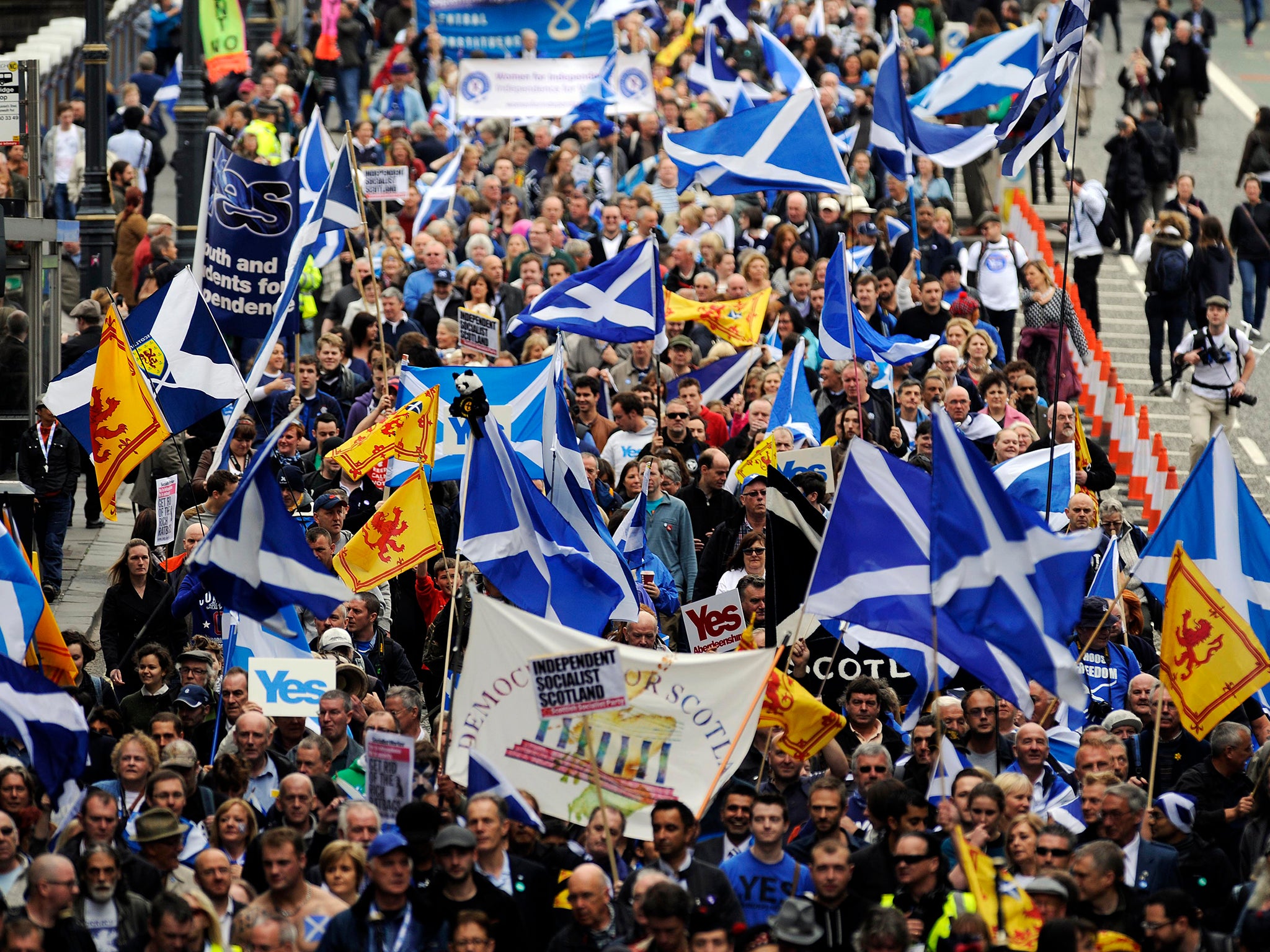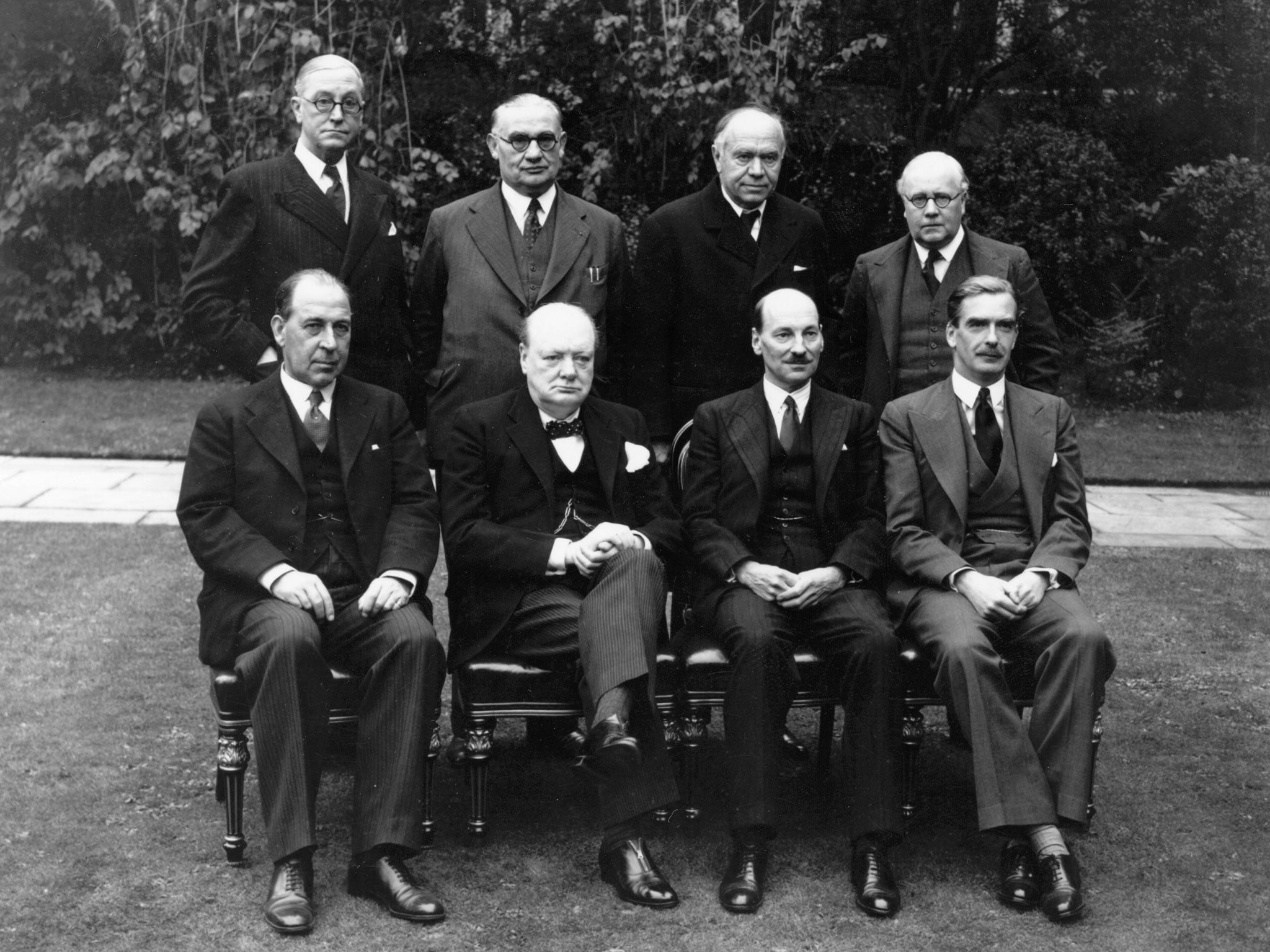General Election 2015: Why a Con-Lab coalition may be needed to save the United Kingdom
A former Tory chairman explains why it may be necessary to think the unthinkable after the general election

Your support helps us to tell the story
From reproductive rights to climate change to Big Tech, The Independent is on the ground when the story is developing. Whether it's investigating the financials of Elon Musk's pro-Trump PAC or producing our latest documentary, 'The A Word', which shines a light on the American women fighting for reproductive rights, we know how important it is to parse out the facts from the messaging.
At such a critical moment in US history, we need reporters on the ground. Your donation allows us to keep sending journalists to speak to both sides of the story.
The Independent is trusted by Americans across the entire political spectrum. And unlike many other quality news outlets, we choose not to lock Americans out of our reporting and analysis with paywalls. We believe quality journalism should be available to everyone, paid for by those who can afford it.
Your support makes all the difference.Lord Ashcroft’s most recent poll forecast a dead heat between the Conservatives and Labour with 272 seats. It also sees the SNP winning 56 of the 59 Scottish seats – a total wipe-out for Labour north of the border.
I am sure David Cameron and Ed Miliband will dismiss this as a fantasy, stressing the poll was taken eight weeks ahead of the actual election. They might have remembered Iain Macleod’s famous dismissal of opinion polls: “Straw men voting in straw polls.”
But let us consider what would happen if a scenario like the Ashcroft result emerges with the Scottish Nationalists, led in the House of Commons by Alex Salmond, holding the balance of power.
The SNP have already said they would never support a Conservative government, and so the prospect would be a Labour minority government, sustained in power by the SNP voting on critical issues such as the Queen’s Speech, motions of confidence and the Budget. This may be looked upon as a triumph by default for Labour, but would in fact be a nightmare for them.
Mr Salmond would demand a high price for his support. He has already banked the promises of further devolution following the 2014 referendum and he would assuredly demand more powers to be devolved, which will move Scotland closer to independence and the break-up of the UK.
It would indeed be ironic if, after Scottish independence had been rejected in a referendum in Scotland, it were gained in England – the Mother of Parliaments.
A Miliband government sustained by a party which has wiped out Labour in Scotland would be an act of supreme cynicism, but that doesn’t necessarily mean it will not happen.
The actual nightmare for Labour is that they would depend upon Scottish votes to secure the passage of legislation on many domestic English issues. If changes, for example, in the English education system or on tax matters (where these measures are devolved to Holyrood) are only able to be passed in the Commons thanks to Scottish MPs voting for them, it would stretch the constitution of our country to breaking point.
English MPs, not only Conservatives, would feel a profound unfairness that Scottish MPs could vote on English measures – the very same issues the English cannot vote on in Scotland. In the case of the Budget, it would be ‘Taxation without Representation’.
English MPs in the House of Commons could well take the position that Irish MPs took in the middle of the 19th century when, seeing that their views were not being represented fairly, they continually disrupted the business of the Commons. That led to the imposition of ‘guillotine’ time limits to curtail debate. But if such guillotines were used now to secure the passage of controversial legislation, and that was achieved only by the support of Scottish MPs, it would constitute a political crisis.
What is at risk is the continuing unity of the UK. In order to preserve that unity, another way should be found. This could be a joint government of the Labour and Conservative Parties – quite unthinkable at the moment and, at this time, likely to be rejected by both of them. But this is what has happened in Germany.

The Prime Minister would be the party leader with most seats – at the moment it looks like David Cameron but it could be Ed Milliband – and both parties would have cabinet seats. Such a coalition should only last two years, which means that the fixed five-year term Parliament Act would be repealed, leading to a general election in 2017.
It would be possible for this government to find areas of agreement – defence, counter-terrorism, infrastructure investment in schools, road, rail and in the reform of skills training and energy. The more controversial manifesto promises would have to be foregone but not abandoned; David Cameron may have to wait until 2018 for the European referendum and Ed Milliband for 2018 for the Mansion Tax.
But this government’s main purpose should be to establish a Constitutional Convention – covering not just Scotland but Wales, Northern Ireland and England – with the intention of preserving the United Kingdom and ensuring that devolution, which is the order of the day, is achieved in an orderly, fair, consistent and coherent way. It must not come about through a series of patchwork measures driven by just one part of the UK, the consequences of which have not been thought through.
One would hope that a consensus would emerge but, in any event, each party could set out its own views at the ensuing general election.
Kenneth Baker is a former home and education secretary
Wartime coalition: Churchill and Attlee
The Conservative and Labour leaders last shared office during the Second World War, dissolving their coalition government in May 1945, shortly after Germany surrendered to Allied forces.
Tory Sir Winston Churchill sat as Prime Minister with Labour’s Clement Attlee serving as his deputy for most of the administration’s duration. The Tories filled the majority of seats, although Labour held a series of senior positions.
Join our commenting forum
Join thought-provoking conversations, follow other Independent readers and see their replies
Comments